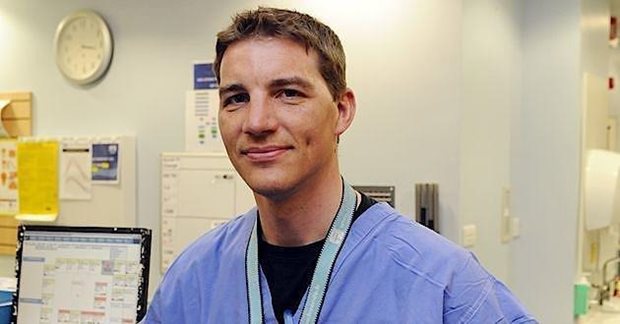
After following his writings in the Edinburgh Evening news in "Caesar's Column", we invited Dave Caesar (MBChB FRCSEd (A&E) FRCEM FFMLM Consultant in Emergency Medicine & National Clinical Advisor (Secondary Care) to the Chief Medical Officer (Scotland)), to share his thoughts about how feedback on Care Opinion contributes to a changing relationship.
A few years ago, I was treating a lady in the Emergency Department who had been rushed in by ambulance. She had had a life-threatening condition, which is not always straightforward to recognise or treat, and I distinctly remember how I and the nursing team had felt really good about how quickly we had established what her clinical problem was, resuscitated and treated her rapidly, called the appropriate specialist and ensured she was rushed to theatre for the surgery that had saved her life.
I also remember, as if it was yesterday, how I had felt when her complaint came into the service a few weeks later. I was so disappointed, so crestfallen, so angry!
However, once I had got over myself and nursed my professional pride, I also realised that what I had thought was important in treating somebody might not always be what is most important to them. Yes, the technical aspects of treatment are really critical to get right, but so are the ways in which we communicate with patients and their families around those decisions, and the way we make people feel.
It served as a really powerful lesson to me, and has helped to change my whole approach to looking after people (and running a service): it is not just what we do; it is how we do it.
But how would we know? First, we need to be certain that we want to know. Entering into the realm of patient feedback can be a concerning proposition for some clinical teams. Certainly, I was nervous when we started collecting routine patient feedback questionnaires in my own department. It felt like the right thing to be doing but I was worried about what comments people would write and what it might do to staff morale. We wanted to improve but we also wanted to make our team feel good about their work.
I needn’t have worried: the feedback was gold dust, and served as a fantastic source of positive feedback for staff, as well as an incisive pointer towards simple areas for improvement. It reinforced the notion that relentless focus on your patients and ruthless transparency can only serve to make your service better and your team feel more valued.
This shift in emphasis from the clinician’s view of the world to a more equal partnership with people is at the heart of Realistic Medicine, and Care Opinion gives a modern functional platform for that shift in relationship. We as clinicians should embrace it with gusto.
There is an old Maori saying:
“Learning brings greater knowledge,
Knowledge brings greater understanding,
Understanding brings greater wisdom,
Wisdom brings greater wellbeing.”
Learning is good for us all.
Dave Caesar (MBChB FRCSEd (A&E) FRCEM FFMLM
Consultant in Emergency Medicine & National Clinical Advisor (Secondary Care) to the Chief Medical Officer (Scotland)
@EM_doc_caesar
Learning is good for us all
Learning is good for us all https://www.careopinion.org.uk/resources/blog-resources/4-images/400dacf722f84168a35e601a6ecb77e0.jpg Care Opinion 0114 281 6256 https://www.careopinion.org.uk /content/uk/logos/co-header-logo-2020-default.pngUpdate from Care Opinion Scotland
Posted by Gina Alexander, Director, Care Opinion Scotland, Care Opinion, on
Thanks for your feedback.

